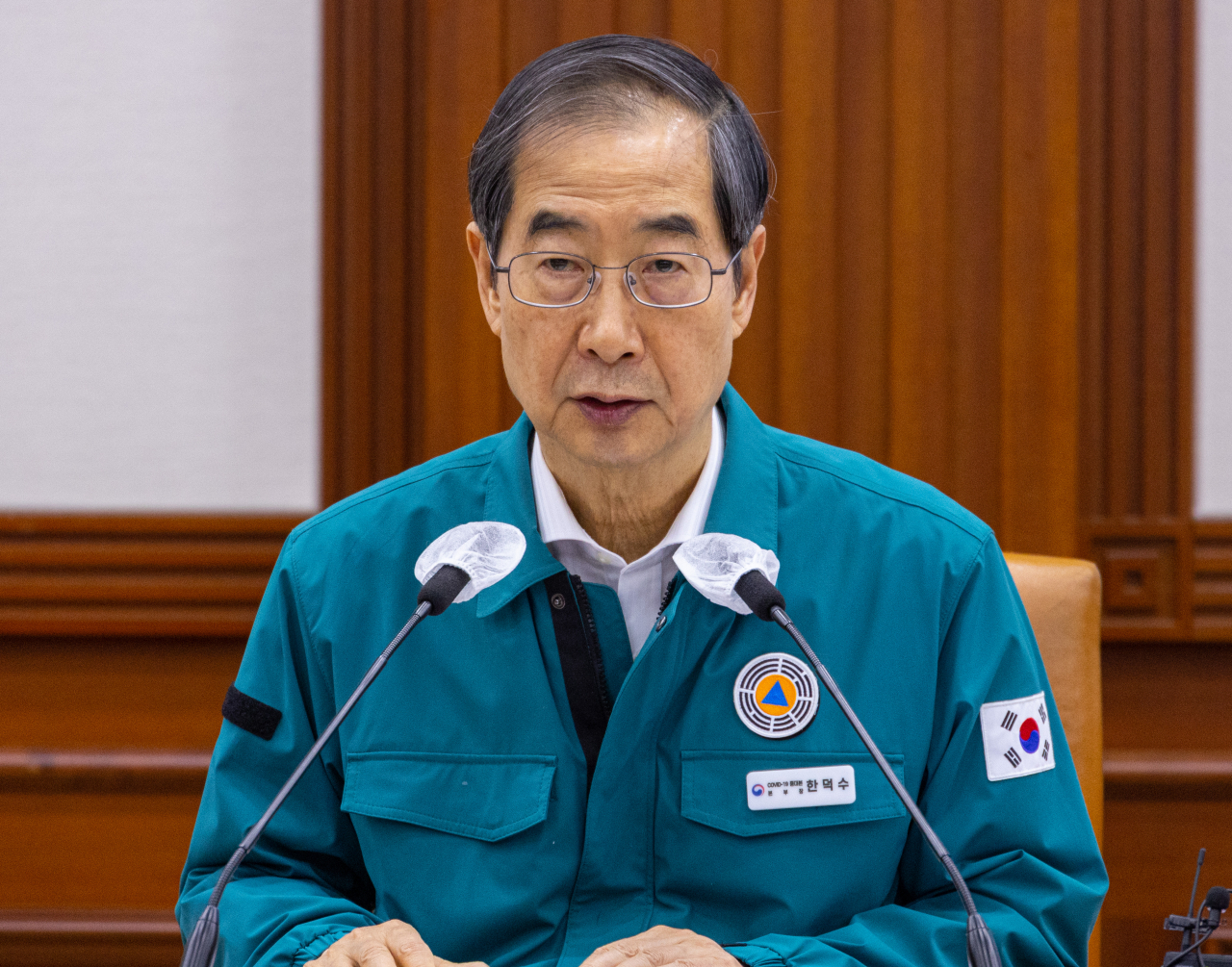 |
Prime Minister Han Duck-soo speaks during a meeting of the Central Disaster and Safety Countermeasures Headquarters at the Government Complex Seoul, Wednesday. (Yonhap) |
South Korea has proposed a plan to shorten the mandatory COVID-19 isolation period from seven days to five starting early May, moving away from the country's crisis-response mode, health authorities said Wednesday.
According to a set of new plans dubbed "road map for returning to normalcy," the government will also consider lowering the crisis level from "serious" to "alert," as well as the disease's classification level.
"The government will shorten the current seven-day isolation mandate period for COVID-19 patients to five, as the government is considering downgrading the virus to a lower infection level," said Prime Minister Han Duck-soo during a meeting of the Central Disaster and Safety Countermeasures Headquarters.
The government will finalize its decision on the isolation period and downgrading the crisis level in early May after a World Health Organization discussion on COVID-19 treatment.
On May 11, the WHO's International Health Regulations Emergency Committee will discuss whether to continue to treat the COVID-19 pandemic as a global health emergency at its 15th meeting. On the same day, the US plans to end its national and public-health emergency declarations over COVID-19.
In Korea, COVID-19 has been classified as a "serious" disease since February 2020, providing legal grounds to mandate a seven-day quarantine for anyone who tests positive for COVID-19.
When the level of the disease is lowered, the Central Disaster and Safety Countermeasures Headquarters, headed by the prime minister, will also be disbanded, according to officials.
Instead, the Central Accident Response Headquarters, headed by the health and welfare minister, will be launched. It will establish measures in line with the new road map. The statistics on the number of new COVID-19 cases released daily will be published weekly. A recommendation for undergoing PCR tests within three days of arrival here from abroad will also be lifted.
Han said Korea is seeing the light at the end of the tunnel.
"The long fight against COVID-19, which has lasted for more than three years, is coming to an end. It was a difficult process, but thanks to the participation of the people, patience and dedication of medical workers, we were able to get here, " Han said.
Countries around the world have lifted most quarantine restrictions.
The list of countries that do not have isolation mandates for COVID-19 patients include Norway, Sweden, Spain, Thailand, France, Singapore, the US, UK, Finland, Australia, and Germany. People in those countries are recommended to stay home and isolate themselves from others if infected by the disease.
Others including Greece, Italy and Israel, have a five-day isolation mandate for people with COVID-19. The seven-day isolation mandate remains only in some countries, such as Japan, Ireland and Belgium.
Earlier this month, the Korean government lifted the mask mandate for public transportation that was imposed since 2020, ending one of the last-remaining COVID-19 restrictions. Korea has removed most COVID-19 restrictions, except for the mask-wearing mandate at medical institutions, general pharmacies and other vulnerable facilities.
If the virus is managed in a stable manner after the classification downgrade, the government plans to consider lifting all requirements for isolation and masking.







![[Today’s K-pop] Blackpink’s Jennie, Lisa invited to Coachella as solo acts](http://res.heraldm.com/phpwas/restmb_idxmake.php?idx=644&simg=/content/image/2024/11/21/20241121050099_0.jpg)